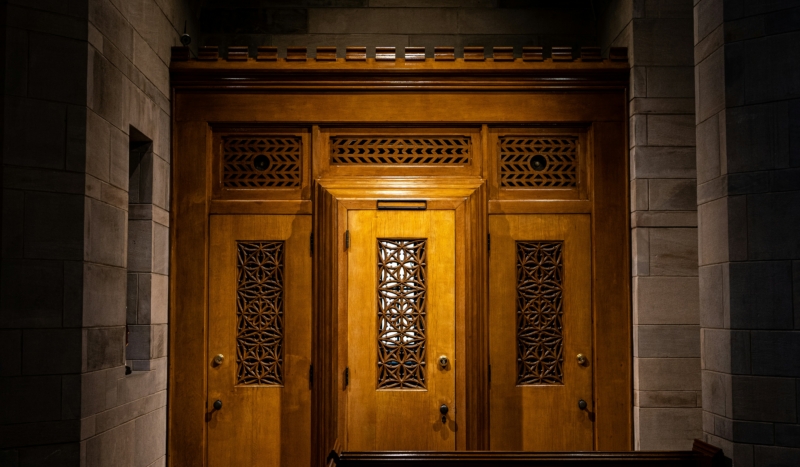
Nick Castelli/ Unsplash
CV NEWS FEED // In a review of James O’Toole’s book For I Have Sinned: The Rise and Fall of Catholic Confession in America, John Miller wrote about how American Catholics’ acceptance of birth control led them to abandon the practice of confession.
Though it is difficult to find exact data, Miller wrote in The Wall Street Journal, American Catholics in the 21st century are significantly less likely to go to confession than they were in the 20th century.
O’Toole’s book pointed out that in the 1890s, 10 priests at the Church of St. Francis Xavier on West 16th Street in Manhattan reported hearing a total of 173,394 confessions over a 12-month period. This means each priest heard about 33 confessions a week.
“Today, it’s nothing close to that,” Miller wrote. “According to St. Francis Xavier’s online schedule, priests are available to hear confessions for one hour on Saturday afternoons ‘or by appointment.’”
Miller also quoted a 2024 survey by EWTN, which reported that a small majority of today’s Catholics report going to confession at least once a year; however, he wrote, other surveys suggest the number may be smaller.
As the sacrament of reconciliation was established in the Bible and consistently practiced through the Church’s history, O’Toole wrote, “Seldom does history offer an example of a practice undertaken for so long by so many that collapsed so quickly.”
O’Toole argued that at the crux of the decline was the use of birth control by Catholics. Miller explained, “Some Catholics quit going to confession because they didn’t want to admit using contraception. Others saw the hypocrisy of confessing a sin that they had no intention of stopping. Many Catholics kept going to Mass and receiving communion but dodged confession.”
Although O’Toole was skeptical about the future of the sacrament and called for the Church to invent a “new form” of reconciliation, Miller wrote that the sacrament “possesses a unique power.”
“When I last partook of it, the priest offered helpful advice about a vexing problem,” he concluded. “I left the confessional with feelings of relief, consolation and hope. I expect to go again.”

